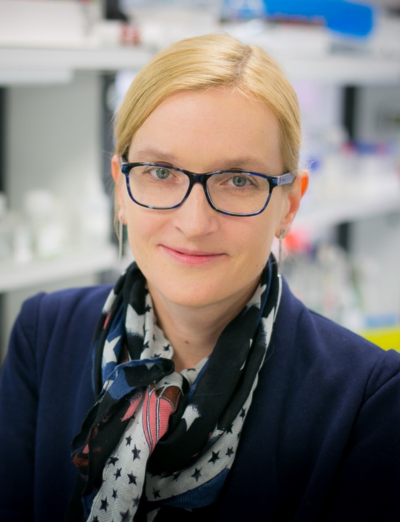Dominika Nowis

The use of mRNA-based immunotherapies in experimental oncology
Abstract
With effective and manufactured at unprecedented speed anti-COVID19 vaccines as well as Katalin Kariko and Drew Weissman 2023 awarded Nobel Prize in Physiology or Medicine, mRNA therapeutics have taken preventive medicine by storm. In other areas, however, no such an impressive progress can be assigned to mRNA-based drugs. In my talk I will present the current status of mRNA-based immunotherapeutic approaches being evaluated in oncology and discus the potential reasons for their so far suboptimal performance.
Biography/Link
Professor Dominika Nowis, M.D., Ph.D. is head of the Laboratory of Experimental Medicine (LEM), Faculty of Medicine, Medical University of Warsaw. Prof. Nowis gained her research experience at Department of Immunology, Medical University of Warsaw, Dana-Farber Cancer Institute, Boston, USA, MRC Weatherall Institute of Molecular Medicine, Oxford University, Oxford, UK, University College Dublin, Ireland, Indiana University School of Medicine, USA and University of Verona, Italy.
She is an author or co-author of over 90 publications published in internationally recognized scientific journals such as Nature Comm, PLoS Medicine, Am J Pathol, Blood, Haematologica, Oncogene, Cancer Res, CA: Cancer Journal for Clinicians, Clin Cancer Res, JACS, Nucleic Acid Research. Her publications have been cited over 7,000 times, her H-index equals 33. She is an author (in 4rd-8th editions) and scientific co-editor (8th edition) of “Immunology” academic textbook (in polish).
Prof. Nowis considers the discovery of the cardiotoxic effects of the proteasome inhibitors and statin-dependent decreased glucose uptake by cancer cells and cells involved in carbohydrates homeostasis her major scientific achievements so far. For the past few years she has been working on the development of research techniques to study antitumor immune responses and finally settled in the field of oncoimmunology and mRNA-based therapies.
LEM webpage: https://lmd.wum.edu.pl/
Orcid ID: 0000-0003-2748-9523
